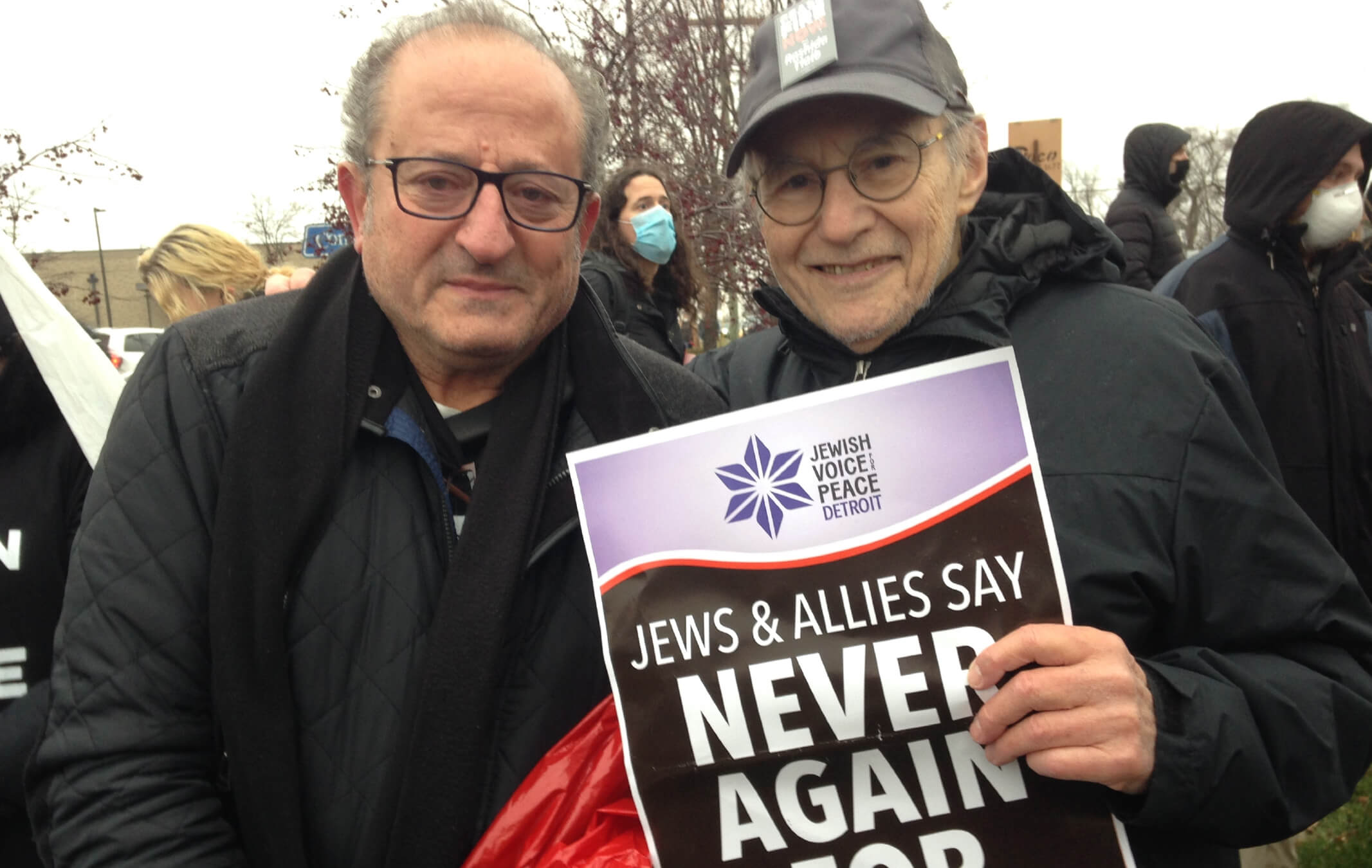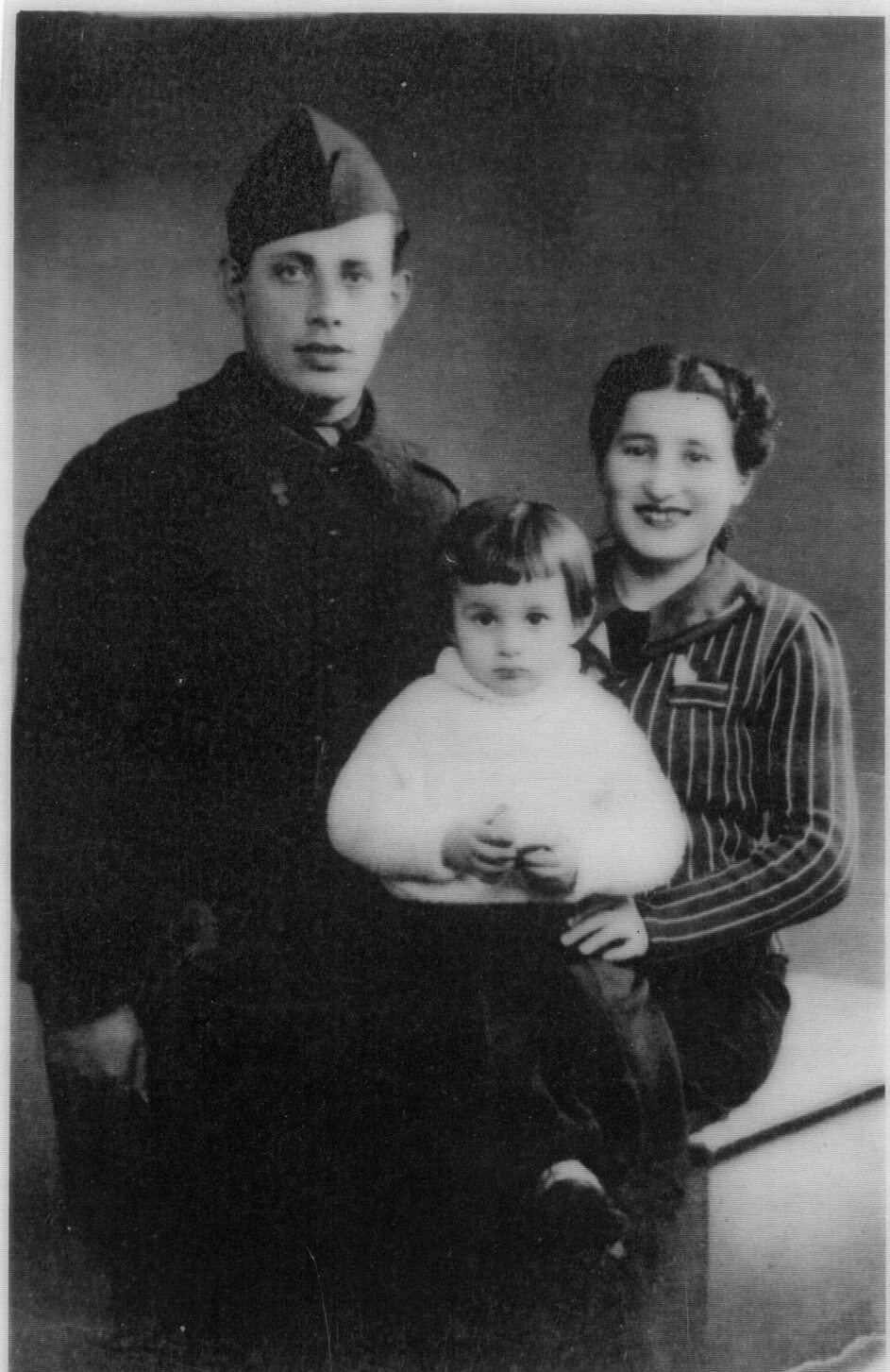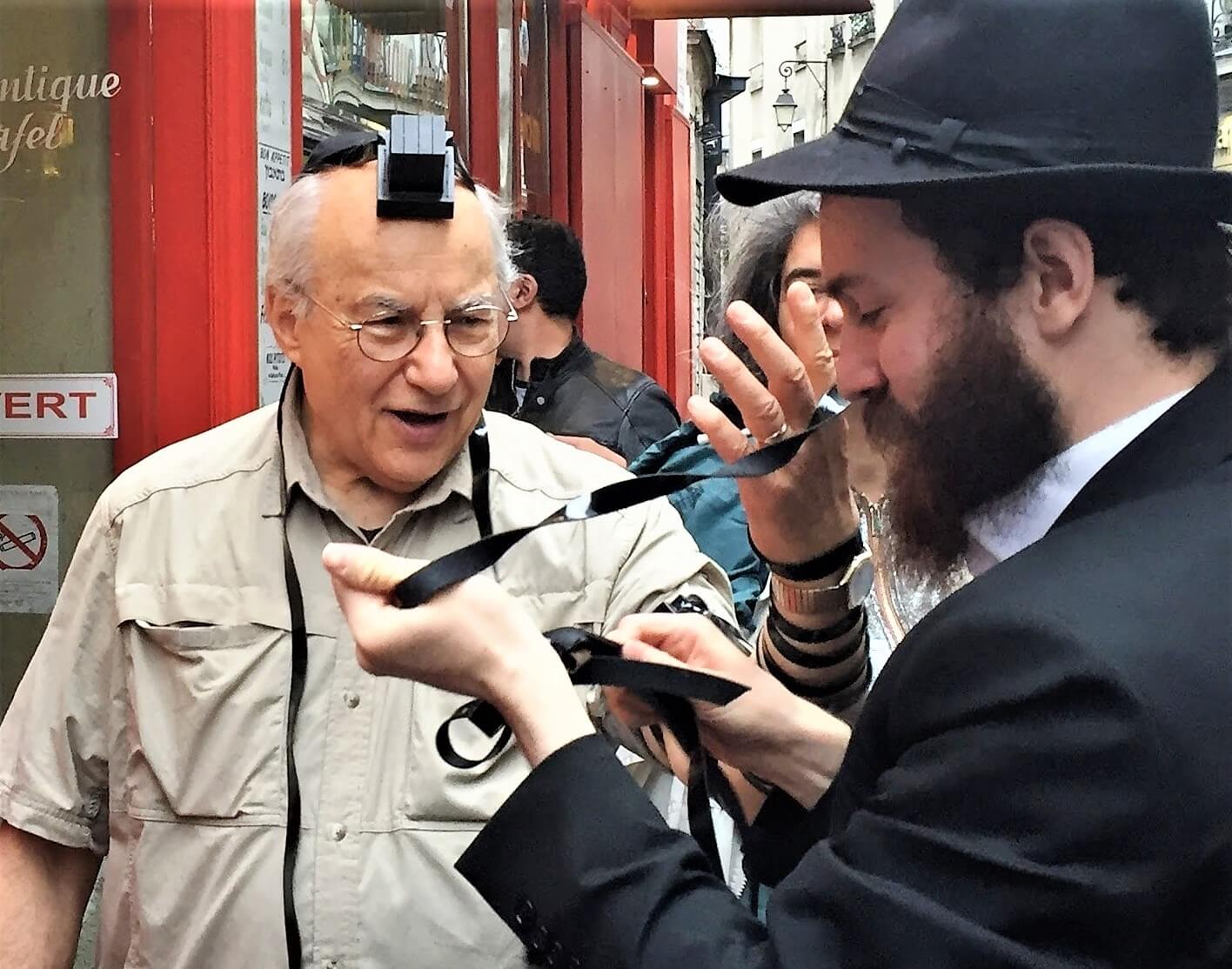A Holocaust museum cut a survivor from its speaker’s list — for protesting the war in Gaza
Rene Lichtman says a Detroit-area Holocaust museum dropped him after he protested in front of its building

Rene Lichtman, right, poses with Palestinian activist Nabil Sater at a suburban Detroit ceasefire protest in December, where both men laid down in the street together to raise awareness.
Holocaust survivor Rene Lichtman, 86, laid down in the road outside a Detroit-area Holocaust museum to protest Israel’s military campaign in Gaza.
With other members of Jewish Voice for Peace in that December demonstration, Lichtman held up a sign. His read: “Jews and allies say never again for anyone.”
Days after the protest, Lichtman got a call from the CEO of the museum, The Zekelman Holocaust Center in Farmington Hills. Rabbi Eli Mayerfeld told him that the board had voted to remove him as a speaker in its Survivor Talk Sundays series.
For 10 years, Lichtman had spoken to school and other groups about his Jewish childhood in France during the Holocaust — the death of his father, and how his mother had entrusted a Catholic family outside Paris to hide him from the Nazis.
Lichtman said the conversation with the rabbi is now a blur, but it was clear that the board made its decision over his views on the war in Gaza.
He aligns his ousting to the experience of other war protesters called out for denouncing the war.
“What’s going on in the museums today, in the universities, is McCarthyism — Jewish McCarthyism,” he said. “Voices that are pro-Palestinian will get destroyed. You will lose your livelihood. The teachers will be thrown out. That’s the world we’re living in.”
The Zekelman Holocaust Center did not respond to repeated requests for comment.

More than 2,000 Holocaust survivors were evacuated from their homes in Israel after Hamas’ Oct. 7 attack, when militants killed 1,200 and took 240 hostage. Many there and in the diaspora describe that day as a painful flashback to the horrors they experienced as children during World War II and support the war against the terror group. Some of them traveled to Auschwitz last month to mark Holocaust Remembrance Day and wrapped themselves in the Israeli flag.
But there are also survivors, like Lichtman, who see Israel’s response in Gaza — more than 35,000 Palestinians have died in the military campaign, according to the Gaza Health Ministry — as genocidal. A 94-year-old survivor who once served as an Israeli diplomat has recommended the arrest of Prime Minister Benjamin Netanyahu on war crime charges.
As a survivor, Lichtman feels he has a responsibility to speak out against the war. In addition to his protest outside the Holocaust center, he has penned a letter to the editor of The Guardian with other Holocaust survivors which he hopes the newspaper will publish. As a retiree, he feels he has less to lose than younger people. And they want to know his opinion, he said. Addressing a group outside of Paris recently, a young person asked him about the sufferings of Palestinians in Gaza.
Holocaust museums want him to censor himself, he said, “because they don’t have any answer” to such questions.
Speaking your conscience, he continued, can draw the attention of groups such as Canary Mission, which posts flyers and maintains an online list of those it says promote hatred of the U.S., Israel and Jews.
Lichtman said he has paid a price for his outspokenness beyond the loss of his speaking slot at The Zekelman Holocaust Center. Family and friends, he said, have shunned him.
The Jewish family has realized “that it’s not a family at all,” he said. “It’s got these Jews that are traitors. That’s me. I’m a traitor, and I’m considered a self-hating Jew.”
An abstract artist and former U.S. Air Force veteran, Lichtman traces his activism to his left-wing parents. He was born in 1937 in Paris to Polish Jewish immigrants. In 1940, Nazis killed his father while he was serving in the French Foreign Legion.

Not long after, his mother placed him in the care of a communist, Catholic family. She paid regular visits until 1942, when she was forced into hiding. They were reunited after the war ended, and immigrated to Brooklyn in 1950 after she remarried.
Lichtman said he was active in the Civil Rights Movement, the feminist movement and protests against the Vietnam War. The parallels between his experience in the Holocaust and what Palestinians suffer today are obvious to him.
“Never have we seen the Palestinians as human beings,” he said. “We dehumanize them in the same way that we’ve been dehumanized during the Holocaust.”
He takes a nuanced stand on Israel, believing that it needs to exist, but also not totally rejecting the anti-Zionist label. He takes issue, he said, with the ways in which Zionism has manifested itself, and supports a two-state solution to the Israeli-Palestinian conflict.
Israel’s increasing isolation in the world is “sad for someone like me, who always felt we did need a Jewish state,” he said, and also hurts Jews.
“We Jews in the diaspora catch hell because of it,” he said. The answer is to “reject what’s being done in our name.”















